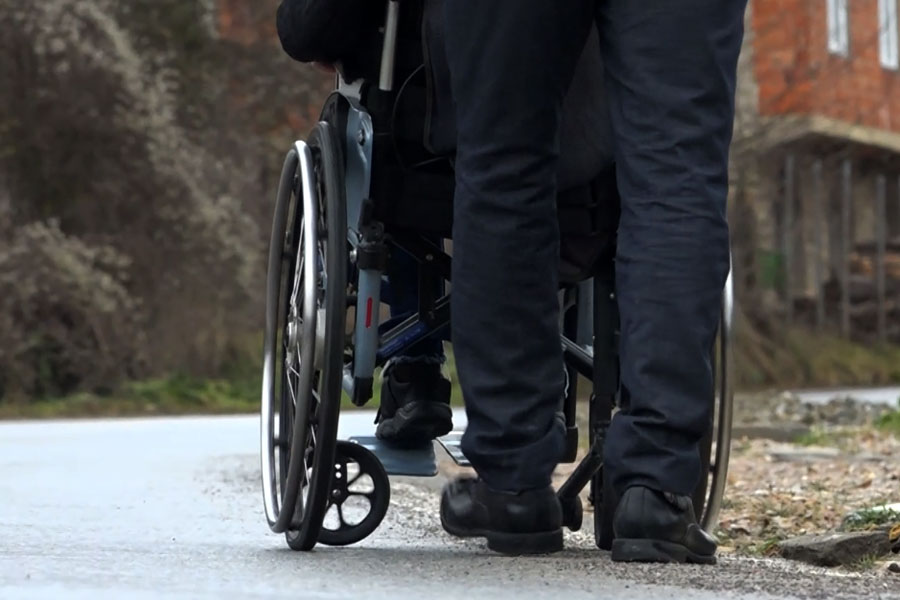
“How much I miss going to school. I miss my friends..."
She has always dreamed of a world without limitations. Her childhood wasn’t like the childhood of the other children of her age.
Her story begins with the memories from the village school.
The eighteen-year-old from the village of Grashticë, near Pristina, is facing social challenges and barriers. She never blames others, even though she has heard words that have hurt her deeply.Not through regular lessons, but recently she has been continuing the 10th grade only through exams.
In primary and lower secondary education in Kosovo, there are over 212,000 students enrolled.
The sixth child of the Krasniqi family, who is diagnosed with cerebral palsy, aims to become an actress one day.
The 50-year-old man has knocked on every door for the treatment of his daughter. He has spent a lot, but has never received help from the state.
Neither Resmia isn’t living in better conditions, who is raising her daughter, Leandra, on her own. Since birth, the woman from Prizren had noticed that her child was not developing as children of her age.
In her efforts to raise her child like others, she suffers the difficulties her 11-year-old daughter faces in every step she takes up to the third floor of the school — without the support of an assistant.
The Ministry of Education has previously stated that several actions have been taken to improve accessibility for children with disabilities in schools. Last year, 15 wheelchair ramps were built, and this year, the construction of 18 more wheelchair ramps is planned.
With the support of the European Union Office in Kosovo, the project 'My Story, My Dignity' is being implemented, which addresses discrimination and gender-based violence against women and girls with disabilities, as well as single mothers raising children with disabilities.
A large number of cases have been helped so far from different regions of Kosovo.According to the World Health Organization, in developing countries like Kosovo, 7 to 10 percent of the population has disabilities.
All public and private institutions are obligated by law to have one person with disabilities for every 50 employees.
Blerina, Leandra, and many other women and girls with disabilities are living with the hope that one day they will enjoy their basic rights.

